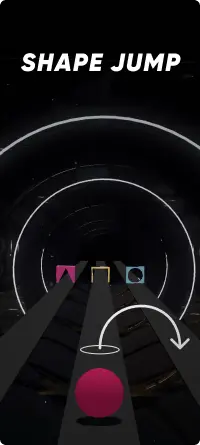Decision
Making
It’s about making good and
fast decisions
Imagine,
you can …
… make better and
faster decisions.
Your
benefits
as …
An Athlete
Better and faster decisions enhance motor output, reduce the likelihood of injury, and can be the deciding factor between victory and defeat.
A Patient
Increased capacity for motor tasks improves movement quality, reduces the likelihood of re-injury, and supports the rehabilitation process.
A best Ager
Especially in the field of mobility, making the right and swift decisions is crucial. This prevents accidents and falls.
A first responder
Fast and effective decision-making is essential for first responders and the military, ensuring safety, efficiency, and success in critical situations.
Decision Making
Definition
Decision-making is the brain’s ability to choose the best option from various alternatives to achieve a goal. Particularly in professional settings, we often need to consider different options and make important decisions for success. In sports, decisions are made within milliseconds, and in everyday life, we need to decide how best to commute, whether by car, train, or bicycle.
Making faster and better decisions boosts our confidence, simplifies daily life, and supports personal and professional success.


It’s your decision
Development
The prime age for decision-making is reached around 20 years old and remains relatively constant until 40. In younger years, decisions are made faster but tend to be more impulsive and prone to errors, while with increasing age, more emphasis is placed on the quality of decisions. However, from the age of 40-50, there is a decline in performance, partly due to the loss of other cognitive abilities like working memory, which is essential for effective decision-making.
Targeted training can help maintain and improve your decision-making skills. SKILLCOURT is here to assist you in this endeavor.
Decision Making
is trainable
At every level
Decision-making ability is determined by the speed of decision-making and the quality of the decisions made. Fast decisions are often more prone to errors, while high-quality decisions usually require more time. On SKILLCOURT, both components are addressed and trained during workouts. To achieve the best score, both quick and accurate decisions are necessary.
Decision Quality
Decision Speed
Players with quick but inaccurate decisions learn to better evaluate situations, while slower players increase their decision-making speed. A feedback system, along with various training programs and levels, ensures ongoing challenges and a motivating training experience. Combined with the physical activity on SKILLCOURT, neuronal plasticity in the brain is stimulated, enhancing decision-making abilities. Besides training, you can also test your decision-making skills on SKILLCOURT.
Decision
making
exercises
Better and faster decisions
The SKILLCOURT features a special category dedicated to training decision-making skills. Various exercises and levels require quick and correct decisions, providing long-lasting motivation through engaging, game-like content and physical activity.
What people
say

Training on SKILLCOURT has made it easier for me to make decisions. It’s a training program that definitely pays off!
– Alan M.

My enjoyment of making decisions has definitely increased thanks to SKILLCOURT. The varied exercises help in making smart choices under pressure.
– Grace O.

The realistic exercises on SKILLCOURT have significantly improved my judgment and strategic thinking. It’s a must-have for smart minds!
– Ryan N.
Become a SKILLCOURT Partner
Are you interested in the SKILLCOURT and would like more information
on how you can integrate the training into your facility?
FA
Qs
What does decision making ability mean and why do I find it hard to make decisions?
Decision-making is the ability to select the best option from various choices to achieve a goal. Problems often arise when the number of options is too large, or when the consequences of the options cannot be fully assessed. The fear of making mistakes, perfectionism, or ‘overthinking’ exacerbate this issue.
How does SKILLCOURT help me make better decisions in the future?
SKILLCOURT trains decision-making by focusing on the speed and quality of decisions. This approach enhances decision-making skills without unnecessarily complex scenarios and transfers them to everyday life. Through various levels, the training difficulty adjusts, presenting the brain with new challenges. The feedback on the speed and quality of decisions, combined with diagnostics, allows for continuous monitoring of training success.
What types of exercises does SKILLCOURT offer to train decision making ability?
All exercises for decision-making on SKILLCOURT require quick and accurate decisions. Additionally, other cognitive abilities such as working memory (e.g., Remember Forms), action control (e.g., Shape Jump), or cognitive flexibility (e.g., Decision Pro) are integrated into the training. This gives each exercise a unique characteristic, enhancing training motivation and everyday application.
– Formen Merken
– Formen Merken Plus
– Shape Jump
– Decision Pro
– Switch Training
Why should I train my decision making ability on SKILLCOURT?
In everyday life, work, sports, or school, we make a multitude of decisions every day. The faster and better our decisions are, the better our performance will be. Our health also benefits, as better decisions lead to less stress. Training on the SKILLCOURT supports this process.
Can SKILLCOURT help to reduce impulsive behavior in decision making?
Yes. Impulsive decisions are often the result of limitations in action control and making decisions too quickly. The training on SKILLCOURT requires both quick and correct decisions to score points and advance in levels. This helps players with impulsive behavior to train better action control and to make better evaluations before making a decision.
How are the decision making skills learned from SKILLCOURT training applied in everyday life?
Decisions confront us in almost every daily situation, from choosing products in the supermarket to selecting the fastest way to work. SKILLCOURT trains decision-making skills and integrates additional components like working memory into the exercises. Combined with physical activity, this approach optimizes training success and its application in daily life.
Contact us
Are you interested in SKILLCOURT and would like more information on how to integrate the training into your facility? Then get in touch with us, and together we will develop a concept tailored to your needs!



